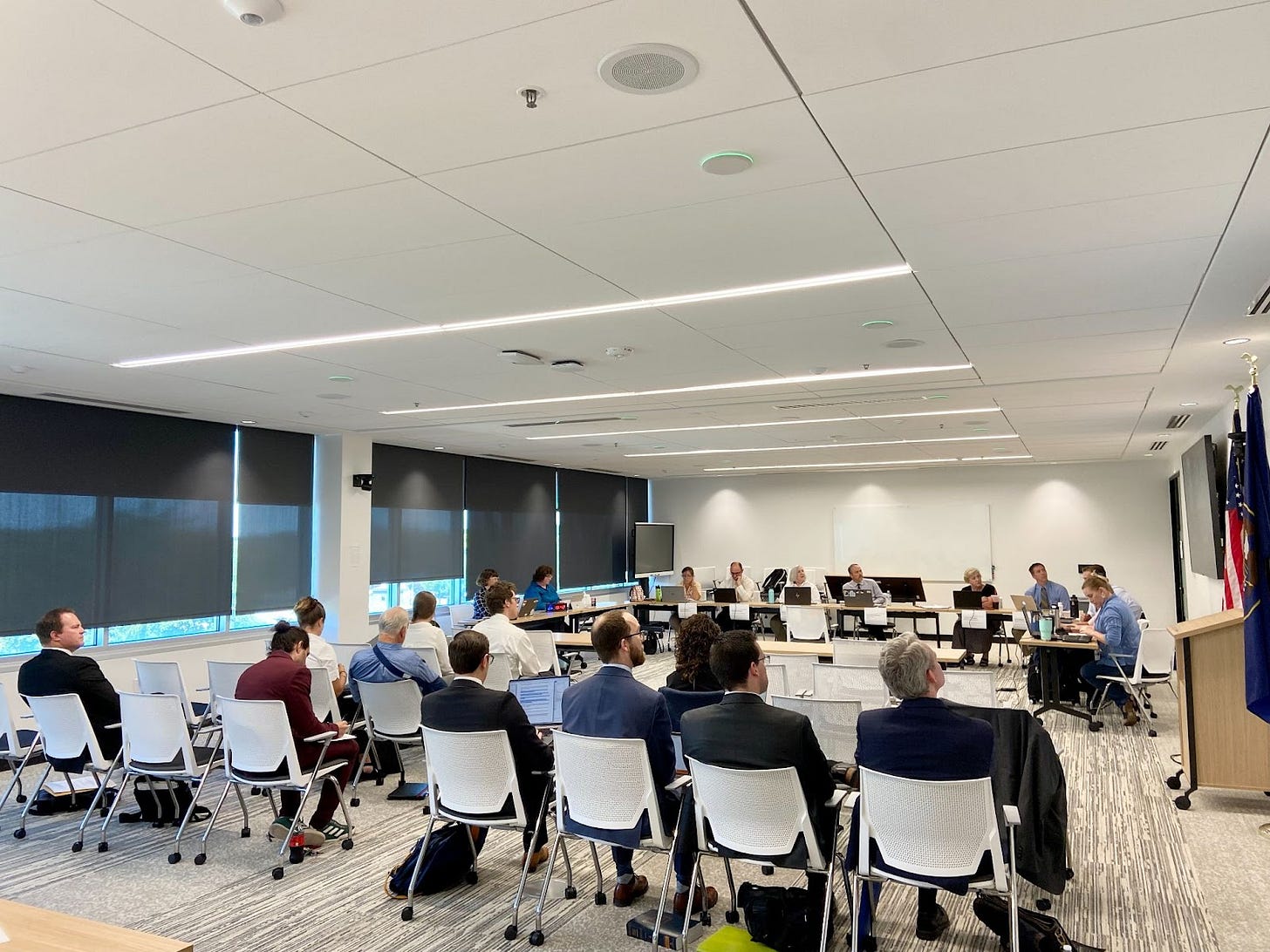A Microdose of Local Election News from across the MIC
Updates from local races I have my eyes on in Georgia and Utah. Plus: Our first opportunity at Inkstick for Newsmatch 1:1 matching donations.
Hi everyone,
As a field reporter for the military-industrial complex, I keep my eye on the people and places tied up in the United States’ nearly $1 trillion national security budget. There’s reams of postmortems available to digest what happened at the federal level; I’d like to fill you in on some remarkable affairs at the local level.
First, a democratic socialist, Gabriel Sanchez, won his statehouse race in the northern Atlanta suburbs. His district includes none other than Lockheed Martin’s second-largest aircraft plant, which makes the C-130 cargo plane and parts for the F-35, both of which have been used for Israel’s invasion and bombardment of Gaza, which he opposes. You can read our interview with him here:
Meet the Democratic Socialist Winning in a Lockheed Town.
Second, a public defender and Palestinian-American who’s also been vocally opposed to the war, Grant Amjad Miller, won a statehouse race for a progressive Salt Lake City district. Unlike Sanchez, his district doesn’t include any manufacturing facilities for Utah's largest defense contractor, Northrop Grumman, but is near both a key missile plant in Magna and a new facility the company is setting up in Salt Lake City itself.
Hill Air Force Base in Utah
Do these local races matter for the military-industrial complex? The contractors themselves definitely think they do, hence Lockheed Martin’s eight registered lobbyists for the Georgia statehouse. Here’s a list of those lobbyists I retrieved from the Georgia Government Transparency and Campaign Finance Commission:
What might weapons manufacturers seek from these local lawmakers?
Well, for one, Sanchez’s predecessor, whom he beat in a Democratic primary, voted in favor of an earmark that gives $100 million in local tax breaks to Lockheed and lobbied the federal government to grant a lucrative contract to the company.
The local perks are similar in Utah, where incoming legislator Miller will have a critical perspective re: Northrop Grumman, the world's largest nuclear weapons manufacturer, which is producing the new intercontinental ballistic missile there. Northrop Grumman gets at least $59 million in state tax breaks to do so.
Local lawmakers also influence contractors’ bottom lines through their endorsements, lending their seal of approval to weapons production in their states. You may not believe this, but I promise you I’m not kidding because I obtained audio of the board meeting — the Republican president of Utah's senate, who supported the subsidies mentioned above to Northrop Grumman, suggested the new ICBM could be useful against "Taliban operatives" in Gaza.
In addition to those lobbyists I mentioned above, a colleague in Utah recently flagged to me another way that Northrop Grumman could start influencing local civic affairs.
Amid tumult at the State Records Committee — an administrative body that reviews public records requests that the government has denied in full or in part — the Republican governor, Spencer Cox, recently nominated a senior employee at Northrop Grumman in Magna to serve on the board. And who’s been sending off a volley of public records requests in Utah regarding Northrop Grumman over the past two years, including an appearance before the State Records Committee and two ongoing public records lawsuits? Us here at Inkstick!
Utah State Records Committee
All of which is to say, there’s a reason we believe this beat, field reporter for the military-industrial complex, is a valuable one that finds and digs into stories that the more mainstream defense press may not. Not to mention that we are a nonprofit that, as a matter of policy, refuses any funding from defense contractors that could color our views — a big rarity on this beat.
I’ll finish by adding that this is our first year participating in Newsmatch, a program from the Institute for Nonprofit News that means any dollar a reader donates to us between now and Dec. 31 will be matched 1:1. If you’d like to double your donation and support both my work and the incoming fellows in our new corps, we’d love for you to donate here.
I honestly don’t know what the course of action for accountability journalism and the movements and watchdogs that rely on us for information will look like over the next four years. But I do know that Lockheed Martin, the top corporate recipient of US taxpayer money, doesn’t just accidentally employ eight lobbyists for the state of Georgia. I don’t think they’re going anywhere over the next four years, and I don’t think we should, either.







